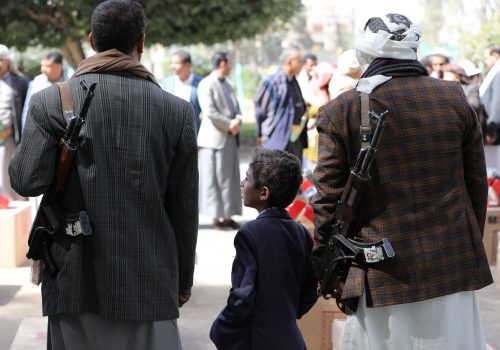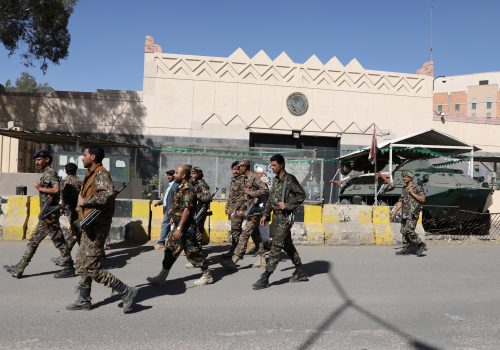Over the course of nearly seven years of war in Yemen, the country has become home to the world’s most dire humanitarian crisis. The conflict, compounded by natural disasters and health crises, has led to economic free fall and currency devaluation, a severe lack of food and fuel resources, and massive internal displacement. More than 80 percent of Yemen’s population requires humanitarian assistance, but humanitarian funding from the international community is not sufficient to provide aid to everyone who needs it.
The United States remains one of the largest donors to the humanitarian response. The new Biden administration has also indicated through early actions that resolving the conflict in Yemen and providing humanitarian relief are a top foreign policy priority. To brief us on the administration’s policies going forward, the Atlantic Council was delighted to welcome Tim Lenderking, US Special Envoy for Yemen, and Sarah Charles, USAID Assistant to the Administrator for the Bureau for Humanitarian Assistance, for a conversation on Friday, March 12, at 9:15 a.m. ET. Atlantic Council nonresident senior fellow Nabeel Khoury moderated the discussion.
Speakers
Sarah Charles
Assistant to the Administrator, Bureau for Humanitarian Assistance
US Agency for International Development
Tim Lenderking
Special Envoy for Yemen
US Department of State
Moderator
Nabeel Khoury
Nonresident Senior Fellow, Rafik Hariri Center for the Middle East
Atlantic Council
Related content

Through our Rafik Hariri Center for the Middle East and Scowcroft Middle East Security Initiative, the Atlantic Council works with allies and partners in Europe and the wider Middle East to protect US interests, build peace and security, and unlock the human potential of the region.


